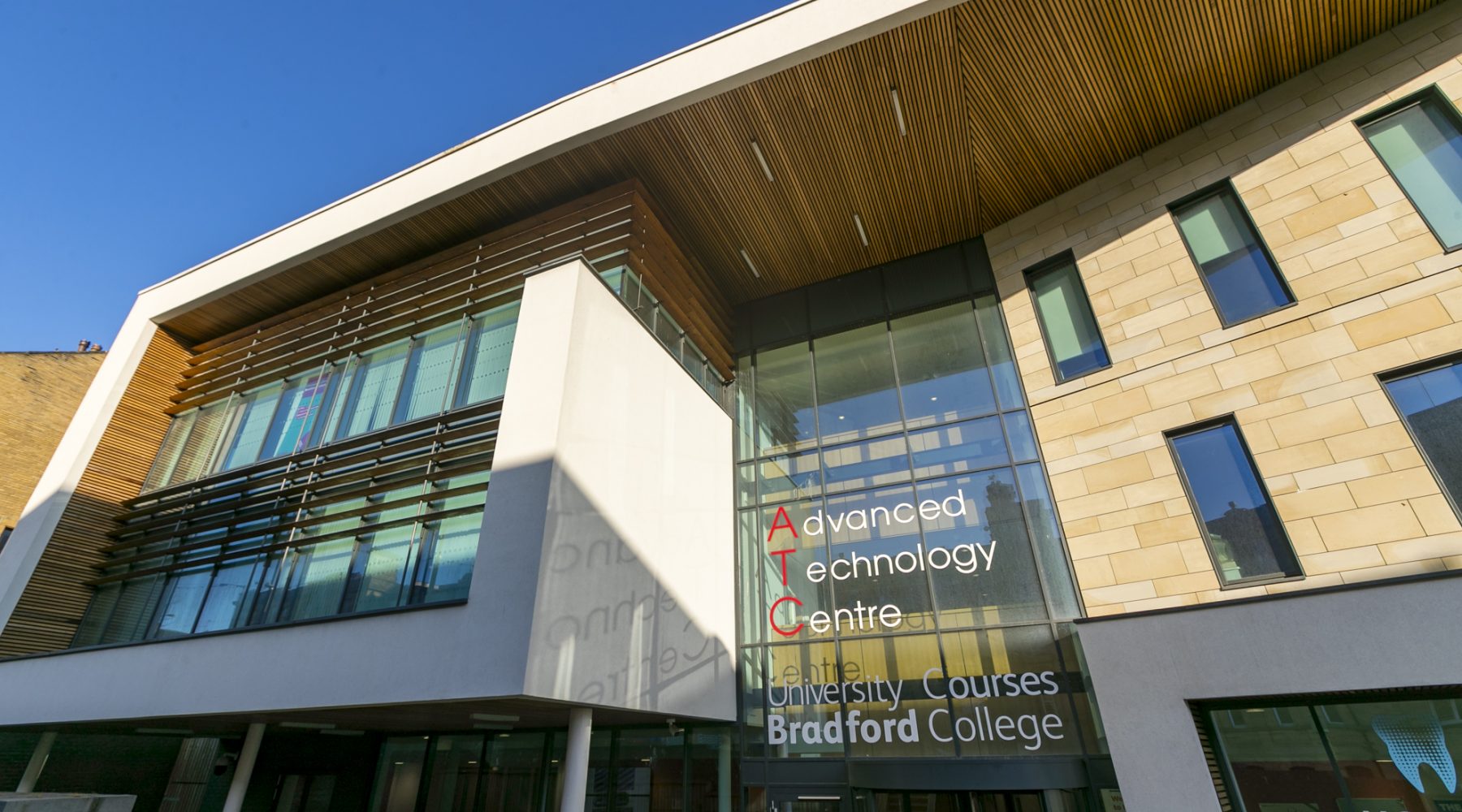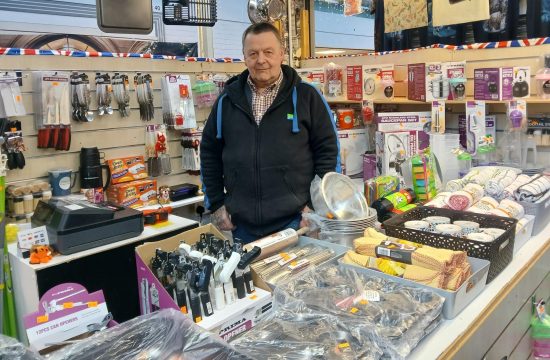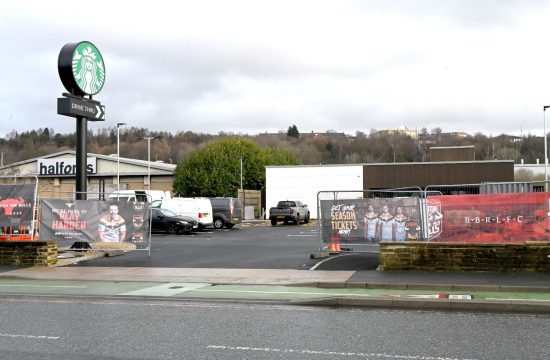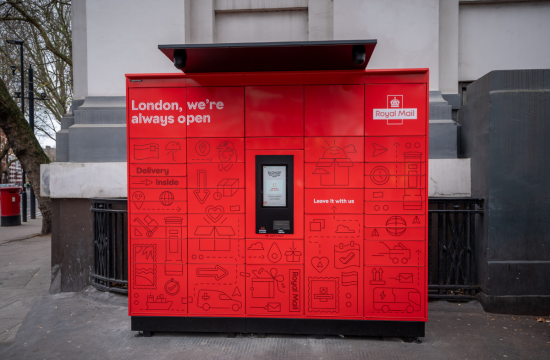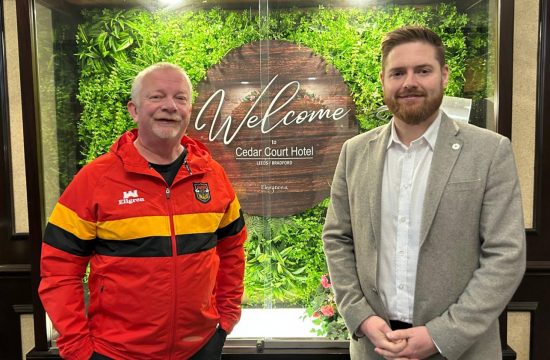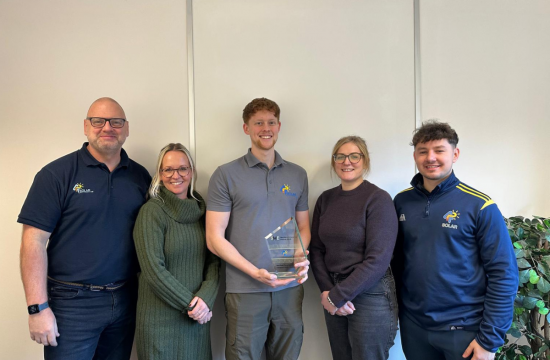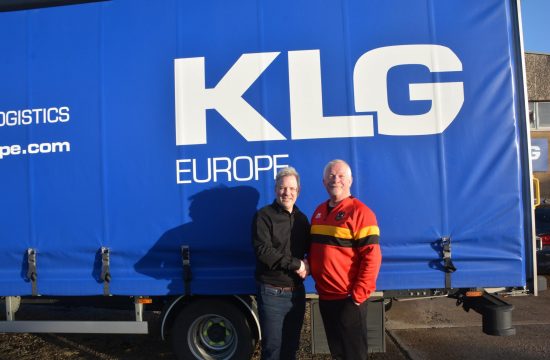Local employers are at the heart of what Bradford College does.
The college actively partners with them to help train their future workforce through apprenticeships and other initiatives. And it’s a policy which is proving successful not just for businesses but for the students themselves.
By Annette McIntyre
“We have a college strategy around providing the curriculum that meets the needs of learners, employers and the community,” said Vice Principal Curriculum Asa Gordon.
“This links back to the skills for jobs white paper which identifies the role of employers in designing the curriculum offer. So as a college over the last three years we’ve really focussed on meeting that employer need – both current and future – in terms of ensuring that the workforce we’re developing is ready for that next step.
“So on a day to day basis that means curriculum experts, including tutors, our curriculum managers, our heads of department, meeting with local employers to bring them in to show them what our curriculum offer is. We talk to them about their current and future skills needs and really look back to the individual elements of that curriculum offer to make sure it’s fit for purpose for local employment opportunities. That’s a fundamental part of what we want to do at Bradford College, to provide that future workforce.”
Anything that helps employers find the staff they need also inevitably helps students and adult learners – equipping them with the skills they need to secure jobs.
“Our focus is on providing the next step,” Asa said. “We appreciate the challenges of Bradford and we know that we have challenges around employment opportunities. We want to give our students the range of skills to enable them to apply and be successful.”

One area the college focuses on is developing skills outside of the specific qualifications but which employers say young people really need – such as communication, teamwork, and problem solving.
“What we’ve done with our employers is design a curriculum where young people still get that main vocational qualification at level two or level three but also get a series of other skills on top to make them more employable and ready for that next step,” Asa said.
This focus has been a key part of the college direction for the last three years. This has involved networking with employers on programmes for young people, adults and apprentices and the higher technical qualifications which the college has also started to develop in the last couple of years.
The strategy is already reaping rewards, with positive signs around the college’s students going on to secure employment.
Bradford College is seeing more students progress from being in college at level 2 and moving on to an apprenticeship at level 3. The college is also seeing positive results around the work it does with adults in partnerships with organisations such as DWP to ensure that they are ready for that next step into employment.
“We continue to see positive trends in terms of people who have studied with the college going on to make that progression into employment, and sustained employment,” Asa said. “And that’s really important to us.”
“We work with over 4,000 adults a year, across a range of programmes and that starts with adults who are furthest away from the labour market, who may need literacy, numeracy and digital skills to make that next step.
“Through to programmes which are more focused on local employment opportunities, working with employers to identify pathways and developing short intensive programmes in partnership with people like Jobcentre to make sure that people are ready for that next step.”
This could include mandatory qualifications such as food hygiene or first aid at work, as well as a range of other skills to help people get jobs.
The college’s focus on preparing for employment is making a real difference to its students.
“We really see that in the conversations that we have with our students every day and we see that in terms of conversations with our employers,” Asa said.

Bradford College has recently been successful in the adult student of the year category in awards given by the West Yorkshire Combined Authority.
In this case the college helped a lorry driver who wanted to become an electrician but who needed to improve his literacy and numeracy skills in order to be able to achieve his goal.
Asa said this kind of success was important in demonstrating to other adults, who didn’t have the skills or education they needed, that they had the option of going back to college to reskill and find a new career.
“It’s really important for us to support them to make that step,” he said.
The college works with a wide range of employers to ensure its programmes are meeting current and future skills needs.
Some of those included in that extensive list are Abrahams & Carlisle, Prospect Change, Jet2, Bradford Bulls and Bradford City, JCT600, AES Seals, Bradford Royal Infirmary, West Yorkshire Police and West Yorkshire Fire Service, MyLahore, Victoria Hotel, Bond Bryan, Anchor Care, Don Whitley Scientific, Screen Yorkshire and Chef’s Forum.
“We continue to see increased engagement from employers looking to come and work with the college on a regular basis to see what opportunities are available for them,” Asa said.
In July the college organised a programme with professional leisure services employers, so that people in businesses such as hair, beauty, and catering, spent a day with lecturers looking at the design of the curriculum for september.
“We’ve really had a clear focus on the roles of employers in terms of our curriculum design,” Asa said. “We’ve realised the importance of employers in terms of influencing that curriculum offer – and have reflected that through the increased number of employers over the last two years who are actively involved in the college in meeting that skills need.
“I would say what we’ve done in terms of the power skills and this development of the wider skills offering in partnership with employers is really meeting Bradford’s needs.”
The college’s plans for the future include extending the programme, to look at young people on level 2 programmes, so that employers would be introduced at a lower level.
Asa added: “We also want to look at our learners who have special educational needs and how we can develop a programme around working with employers to show how they can be an asset to their workforce.”
He has no doubt about the importance of college-employer partnerships.
“I think these partnerships with employers are vital for our students. They give the students an opportunity to understand what it’s like to be in the workplace. They get to meet with employers who are talking about their current and future needs.”
As technology moves so quickly Asa believes it is important to actually meet employers and find out about the roles and opportunities available.
He believes giving young people the chance to have that exposure to a full range of local employers helps them to make the right decision when they want to make the next step.
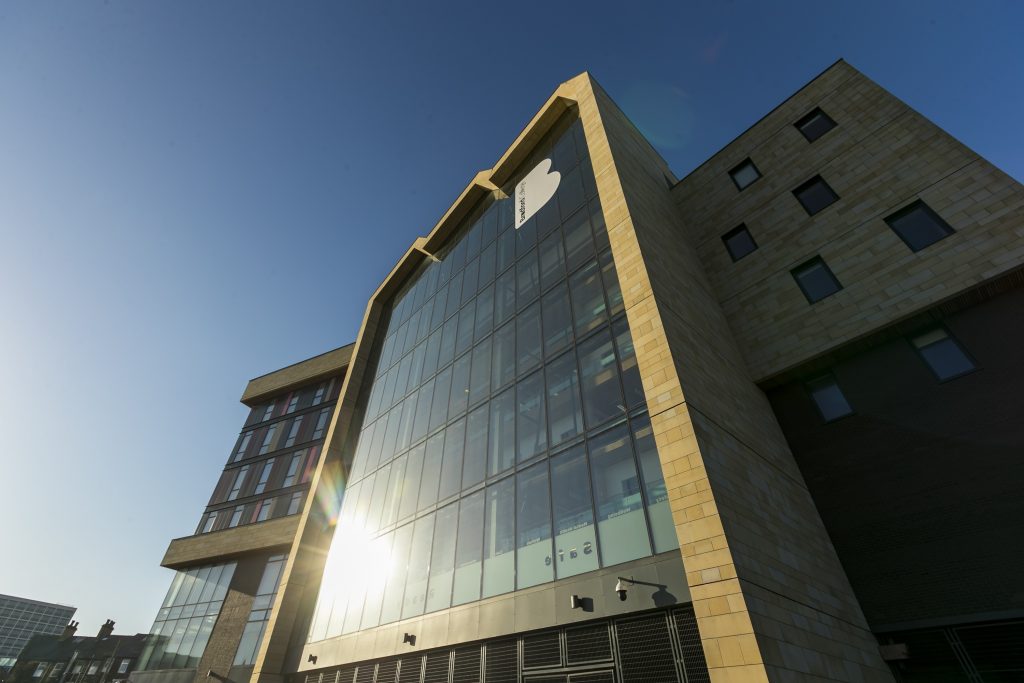
Bradford College’s focus can be seen in its unique Ambition Hub programme, which recently held a development day to shape its 2024/2025 programme. Teaching teams from eight curriculum areas joined with stakeholders, employers and students to share their vision for the year ahead.
Ambition Hub is a structured study programme, designed specifically to address local skills priorities and provides clear progression routes for students into higher education, apprenticeships or employment. Representatives from Bradford Bulls, Dance United, Kidsplanet, the RAF, West Yorkshire Police and CTE SkillsHouse participated in a number of tasks throughout the day to ensure that the course meets the evolving needs of students and employers.
Ambition Hub students enjoy a range of opportunities, including a vocational qualification at Level 3, sector specific masterclasses as well as masterclasses on skills such as leadership, collaboration and resilience and 160 hours of work experience.
The collaborative event was led by Furkan Uddin, Head of Department at Bradford College.
He said: “Students are at the heart of what we do. By addressing and plugging employment and skills gaps such as leadership, resilience, collaboration, we can show students where their skills fit in the local employment market.”
“This programme makes it easier for young people to identify areas they’re passionate about and explore all related careers. Today’s feedback shows that students have built their confidence and feel more aware of their career choices and the roles that are available to them.”



